Each year the APS recognises members who have made an outstanding contribution to the APS and to the advancement of psychological knowledge or practice by electing them as Fellows of the Society. Sixteen members were elected as APS Fellows at the 2011 APS Annual General Meeting.
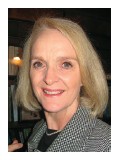 Dr Elizabeth Allworth
Dr Elizabeth Allworth
Elizabeth Allworth has been Director of Allworth Juniper since 1997. She has an advanced knowledge in selection and assessment, as well as job analysis, performance measurement, career development, and test development and validation. Elizabeth exemplifies the science-practitioner model, completing her PhD at Macquarie University in 1998, where she researched psychometric predictors of the capacity to cope with change in work and training contexts.
Since the mid 1990s, Elizabeth has been integral in training and developing intern and early career psychologists. She is currently an accredited supervisor with the Psychology Board of Australia and also supervises Masters of Organisational Psychology students at both the University of New South Wales and Macquarie University. She has been a regular lecturer in assessment and selection in the Coaching Psychology Unit of the School of Psychology at the University of Sydney since 2002, and a guest lecturer at Macquarie University. She has also published extensively in the field of organisational psychology, and presented at a number of conferences in Australia and overseas.
Elizabeth has contributed to the APS College of Organisational Psychologists (COP) as Membership Secretary for the National COP Committee (1997–1999) and by being on the COP Media Panel (2008–2011) and the COP Testing Sub-Committee (2002–2003). Elizabeth has been on the APS Ethics Committee (2003–2007) and since 2008 has been a member of the APS Ethical Guidelines Committee and the COP National Regulatory Developments Working Group.
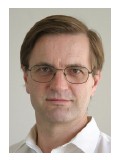 Associate Professor Stephen Bowden
Associate Professor Stephen Bowden
Stephen Bowden is an academic whose research and contribution to neuropsychology is widely recognised both nationally and internationally. He has been a lecturer at the University of Melbourne since 1987, teaching at undergraduate and postgraduate level in clinical and neuropsychological assessment, evidence-based psychological practice and neuropsychological disorders. He was promoted to Associate Professor in 2000, and has been instrumental in developing and delivering the clinical neuropsychology postgraduate curriculum since his involvement in the early 1990s. In addition, since 1994 Stephen has been Head of Neuropsychology and Honorary Consultant Neuropsychologist at St Vincent’s Hospital.
Stephen has published over 70 articles in peer reviewed scientific journals and has been the recipient of over $2.3 million in competitive psychological research funding. He has supervised research of students at Honours and postgraduate level, presents regularly at national and international conferences and is sought after as a guest lecturer and workshop presenter.
Stephen has been a very active member of the APS College of Clinical Neuropsychologists (CCN) since 1994, when he was the Scientific Program Chair of the Inaugural CCN Conference. Since then he has served on numerous senior roles in the CCN, including as Chair and member of scientific program committees for at least seven national CCN conferences, and also as Chair of the National Committee of the CCN (2005–2009).
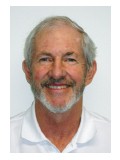 Associate Professor Paul Bramston
Associate Professor Paul Bramston
Paul Bramston is currently Associate Professor in the Department of Psychology at the University of Southern Queensland, a role he has held since 2002. He also works part-time in private practice. Paul’s working life passion has been to enhance the lives of people with an intellectual disability. In addition, Paul has championed rural and remote psychology practice, from successfully offering clinical services to children and families in northern NSW, to pioneering supervised student clinical placements in western Queensland.
Paul was the inaugural co-ordinator of the University of Southern Queensland’s Master of Psychology and Doctor of Psychology (Clinical) programs. This included the establishment of an on-site psychology clinic. As well as his teaching work, Paul is also postgraduate placement co-ordinator. Paul’s research is known internationally as leading the field of stress research amongst people with intellectual disabilities. He has developed a standardised, valid and reliable self-report stress scale, ‘The Lifestress Scale’, which is available on the web, has been translated into two languages and is regularly accessed by both researchers and clinicians.
Paul was Chair of the APS Darling Downs Branch (1998–2002), a member of the National Executive of the APS College of Health Psychologists (2004–2009) and has been on a number of working groups including those focusing on rural and remote psychology and professional development issues.
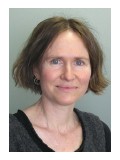 Dr Susie Burke
Dr Susie Burke
Susie Burke is currently Senior Psychologist in the Public Interest team at the APS National Office, a role she has held since 2002. Susie completed her PhD at La Trobe University in 1998. Her early career focused on conflict resolution, parenting and family relationships and more recently, on applications of psychology in the public interest, and environmental threats such as climate change and disaster management.
In her role at the APS, Susie has produced and co-authored academic publications, tipsheets, guidelines, government submissions and position papers. In her work with the APS Disaster Preparedness and Response Reference Group, Susie has co-authored a range of materials on coping with natural disasters, particularly in relation to children’s needs. Following the Victorian bushfires, Susie created an information hub on the APS website to assist practitioners and members of the communities affected by the fires. She also delivered workshops in psychological recovery to GPs and psychologists. In response to recent natural disasters, Susie established the Disaster Response Network of psychologists (currently over 1,000 members).
Susie became involved with the Psychologists for Peace Interest Group when she first joined the APS in 1998 and was National Convener from 2000–2010. Susie’s zeal helped reinvigorate the APS Psychology and the Environment Interest Group, putting the environment firmly on the agenda at the APS Board, management and Interest Group level.
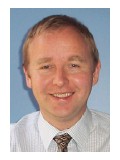 Professor Andrew Day
Professor Andrew Day
Andrew Day is Professor in Clinical Forensic Psychology at Deakin University. Before joining academia he was employed as a clinical psychologist in South Australia and the UK, having gained his Doctorate in Clinical Psychology from the University of Birmingham and his Masters in Applied Criminological Psychology from the University of London.
Since leaving full-time professional practice, Andrew has established a strong academic profile as a forensic and clinical psychologist. He has been a productive researcher, having published widely and completed a number of national competitive and contract research grants. His specific expertise lies in the treatment and rehabilitation of offenders, and there is a clear focus in his teaching and research on bringing about change at an individual and community level. He is particularly interested in the development of skills and knowledge that can inform and enhance the delivery of professional psychological services in the criminal justice arena.
Andrew is a member of the National Executive Committee of the APS College of Forensic Psychologists (1999–2000 and 2008–present) and is the immediate past Chair of the South Australian section (2008–2010), having served as a committee member since 2002 and Treasurer from 2007–2008. He has served on the scientific committees for the last two Forensic College national conferences.
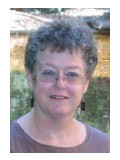 Dr Linley Denson
Dr Linley Denson
Linley Denson is currently Senior Lecturer in the School of Psychology at the University of Adelaide. She has held this role since 2006 and has developed and upgraded curriculum for the Master of Psychology (Clinical) and Master of Psychology (Health) programs. She has delivered undergraduate and Honours courses in mental health and evidence-base practice, and fostered students’ enthusiasm by introducing online journal clubs and interactive ethics training. Prior to her move to academia, Linley developed extensive clinical experience by holding senior clinical and neuropsychology positions at the Royal Adelaide Hospital and other South Australian State Government health services. She is a Member of the SA Guardianship Board.
Linley has collaborated on many peer-reviewed publications and supervised numerous clinical psychology interns enrolled at all three South Australian universities. She has also provided College supervision for the APS Colleges of Clinical Psychologists and Clinical Neuropsychologists.
Linley has been a Member of the South Australian Branch Committee (1991–1996 and 2005–2009). Her leadership roles at State and national levels within APS Colleges include: Convenor of the 2008 CCN National Conference, and CCN SA section Chair (2007–2009) and Treasurer (1991–2007). As SA section Chair of the Clinical College (1992–1995), she re-invigorated this section by promoting membership and convening regular CPD seminars, also serving as Secretary/Treasurer (1996–1998) and Treasurer (1999–2001). Linley has also been a National Executive Committee Member, Forensic College (1997–2001) and SA section Committee Member, Health College (2007–2011).
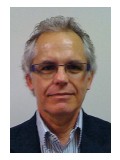 Professor Patrick Heaven
Professor Patrick Heaven
Patrick Heaven is currently Professor of Psychology and Associate Dean Research in the Faculty of Health and Behavioural Sciences at the University of Wollongong. Patrick has had a distinguished academic career, beginning in South Africa where he obtained his Doctorate at the University of South Africa. After working as a researcher and academic, Patrick moved to Australia in 1982 to take up an academic position at the Australian National University and later, Charles Sturt University and the University of Wollongong, becoming Head of School in 2001.
Patrick has always been an active researcher, focusing on personality, developmental psychology and health psychology. He has published six books and more than 150 scientific papers. In 2007 he was awarded the HJ Eysenck Memorial Research Award for research into personality and individual differences. He has held a number of ARC and NHMRC grants, and has initiated longitudinal studies of high school students to clarify the psycho-emotional underpinnings of behavioural development. Patrick was Chair of the Heads of Departments and Schools of Psychology Association (HODSPA) from 2007–2008.
Patrick has been Editor of the Australian Journal of Psychology since 2007, and since then has overseen the expansion of the AJP to four issues per year, and also broadened the reviewer base and international reach of the journal. In 2008 he initiated the APS Interest Group on Personality and Individual Differences Psychology. Patrick is also currently a member of the APS Science, Academia and Research Advisory Group and the APS Program Development and Accreditation Committee.
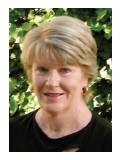 Ms Elaine Hosie
Ms Elaine Hosie
Elaine Hosie is currently in private practice, but prior to her retirement in 2009, was Director of Counselling and Educational Services at Melbourne Grammar School, a role she held from 1997. There she led a team of psychologists providing a core service involving the diagnosis and treatment of emerging mental health disorders affecting educational processes. Elaine’s dedication in this role and her management of psychological and teaching staff, students, families and school management has contributed to a change in perception of the role of school psychologists.
After a career in teaching Elaine commenced work in the tertiary sector at Deakin University. Elaine is currently an Honorary Lecturer at Swinburne University and lectures on psychology in schools. She has also held similar roles at La Trobe and Monash Universities, where she marked theses and supervised postgraduate students respectively. The practice of psychology, in particular counselling psychology, has always been the focus of Elaine’s research and work and this is demonstrated in her return to private practice.
Elaine has been National Chair of the APS College of Counselling Psychologists (COCP) since 2007. She has also been a member of the COCP State Executive (1993–1998) and the APS Chairs of Colleges Forum (2007–present). She was PD Co-ordinator for COCP (1998–2007) and on the APS Professional Development Advisory Group (PDAG) during this time. Elaine is a supervisor on the APS Psychologists in Schools Reference Group (2007–current) and has served on the APS Membership Recruitment and Retention Advisory Group (2008–2010).
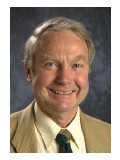 Associate Professor Michael Knowles
Associate Professor Michael Knowles
Michael Knowles gained his MComm at the University of Queensland and his PhD at the University of Edinburgh. His major contributions are in three areas. The first is in teaching and research. Michael joined the Monash MBA program in 1970 and later became its Director. He has received a Faculty Award from the University for Excellence in Teaching and the Elton Mayo Award of the APS for Outstanding Contributions to Industrial/Organisational Psychology.
Michael was a Foundation Member of the APS and was made a Life Member in 2010, and his second area of contribution spans this period. He was Treasurer of the APS for four years and later President (1981–1982), the first native born Queenslander to hold this position. He served for eight years on the Organising Committee for the 1988 International Congress of Psychology (ICP) and nine years on the Organising Committee for the 2010 International Congress of Applied Psychology (ICAP).
The third area of contribution is with the International Association of Applied Psychology (IAAP) of which he became President, the first Australian to hold this post. Bringing ICAP to the southern hemisphere and Melbourne was a key objective not only in giving IAAP a global orientation, but also in displaying to the international community the strength of Australian psychology as well as enabling Australian psychologists to develop academic and professional relationships with colleagues abroad. He has received Presidential Awards from both Divisions 1 and 52 of the American Psychological Association for such contributions to international psychology.
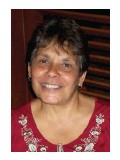 Ms Joyleen Koolmatrie
Ms Joyleen Koolmatrie
Joyleen Koolmatrie is recognised as one of the founding figures in Indigenous social and emotional wellbeing and psychology, particularly in the area of grief and loss and the Stolen Generations. As well as running a busy private practice, Joyleen has worked at the Australian Indigenous Leadership Centre since 2002. Her knowledge of Indigenous cultural factors and their implications for assessment and intervention is drawn from her experience within the Indigenous community in both a voluntary and professional capacity over a period of more than 30 years.
Previously, Joyleen worked in the Western Australian prison system with prisoners at risk. She has been a tutor at the Centre for Aboriginal Studies, Curtin University, and a guest lecturer at Murdoch, Edith Cowan and Curtin Universities. She has also facilitated professional development sessions on grief and loss, problem solving and leadership healing for government departments and Aboriginal community organisations. In 2008 she was called upon by the Federal Government to coordinate the counselling response to follow the National Apology. Joyleen has published in mental health and psychological journals and textbooks, and her work is widely cited. She was also one of the founding members of the Australian Indigenous Psychologists Association (AIPA).
Joyleen was National Convenor of the APS Aboriginal and Torres Strait Islander Peoples and Psychology Interest Group (1999–2005). She has been on the APS Indigenous Education Reference Group (2006–2008) and an invited speaker at APS Conferences in 1997, 1999, 2000 and 2001.
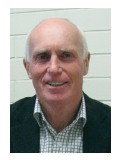 Mr Alan Plumb
Mr Alan Plumb
Alan Plumb is currently Psychologist in Charge at the Bunbury Behaviour Service Centre, and also works part-time in private practice. From 1991–2010 he held senior roles within the Western Australian Department of Education, where he has worked since the late 1970s. Alan has made a significant impact in training school psychologists and in improving standards within the school psychology service in relation to emergency management and response.
Alan was responsible for managing the education response to the multiple fatality Gracetown cliff collapse which occurred on a primary school excursion in 1996. His work involved coordination of the initial response, ongoing coordination of support to the school communities and a policy review. Alan was integral in the planning of an online electronic template Emergency and Critical Incident Management Plan that allows schools to develop their own system for dealing with potential emergencies. He has also facilitated the design of a database management system for school psychologists to record services and manage data, which has been adopted throughout Western Australia. During his time as a member of the Registration Board of Western Australia (2004–2010), Alan was instrumental in revamping the registration guidelines for provisionally registered psychologists.
Alan has been Chair of the APS South West Branch of the APS (2003– 2005), Chair of the Perth Branch (2006–2007) and WA State Chair (2007–2011). He has been on the Psychologist in Schools National Advisory Group (2007–2010) and a member of the National Committee of the APS College of Educational and Developmental Psychologists (2010–present).
 Professor Martine Powell
Professor Martine Powell
Martine Powell is Professor of Psychology and Coordinator of the Doctor of Psychology (Forensic) at Deakin University. She is internationally recognised for her work in child witness testimony and investigative interviewing, having almost singlehandedly been responsible for the introduction of psychological principles in the interviewing of children by police in all states of Australia.
Martine completed her PhD at Monash University in 1996, which examined children’s recall of repeated events. In her role as lecturer, senior lecturer and then professor of psychology at Deakin University she has overseen the establishment of Deakin’s forensic psychology program. Further, she has assisted in the development or administration of numerous investigative interviewer training programs offered by universities, government departments and police services across the globe. Martine has authored or co-authored 149 articles in refereed journals or books, as well as given many conference presentations, and has had editorial responsibilities in several international journals. In recent years, Martine has researched the relationship of language competencies to offending and explored how instigators of sexual crimes are affected by their actions. She has also contributed to improving the quality of investigations of the police and other agencies that investigate offences against children, and cases where Aboriginal people are offenders or victims of crime. She is a sought-after and effective presenter of workshops to psychologists and non-psychologists both in Australia and overseas.
Martine was on the APS Ethics Committee (2000–2003) and the Victorian Executive Committee of the APS College of Forensic Psychologists (2003–2005).
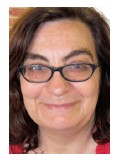 Dr Lina Ricciardelli
Dr Lina Ricciardelli
Lina Ricciardelli is an academic psychologist working in the fields of developmental and health psychology, in particular in the area of body image concerns. She is currently Associate Professor and Chair of the Doctor of Psychology (Health) at Deakin University, where she has worked since 1995.
Lina completed her PhD at the University of Adelaide in 1990, and commenced her academic career studying children’s language development. She went on to expand this work by investigating sociocultural influences on body dissatisfaction and body change strategies in youth. Her longitudinal work on the role of parents, peers and the media in determining body image, eating and exercise among boys was the first in its field. Lina has been successful in attracting research funding in the vicinity of $1,265,000. She has published over 100 research papers in high impact journals, and her work has been used widely in research studies around the world, being translated into 15 languages. Lina has also had extensive teaching and supervision experience at both the undergraduate and postgraduate level.
Lina was Chair of the Victorian State Section of the APS College of Health Psychologists (2004–2008), a Member of the National Executive of the CHP (2004–2008) and is currently National Chair of the CHP (2008–present). She advocated tirelessly in 2010 for the inclusion of health psychology as an endorsed area of specialised practice under national registration.
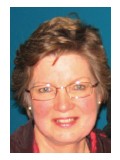 Ms Ann Stark
Ms Ann Stark
Ann Stark has been a private practitioner since 1987. She has also been responsible at a senior level for the regulation of the practice of psychology over this time.
In 1976, Ann was appointed as the first Court Counsellor for the Family Court Australia in Hobart and was consequently involved in the establishment of the Family Court Counselling Service in Tasmania, ultimately becoming Director of Court Counselling for Tasmania (1983–1987). As Acting Head of Counselling at the University of Tasmania (1992 and 1994) she established unit policies and oversaw the provision of counselling services. Ann is currently an Honorary Associate in the School of Psychology at UTAS, where she has been a staff member or visiting lecturer for many years, developing counsellor education and also teaching in the postgraduate psychology program. Ann served as Member, Deputy Chairperson and then Chairperson (2004–2010) of the Psychologists Registration Board of Tasmania, during which time she led the upgrade of the Board’s Guidelines for Professional Supervision and instigated state-wide training for Board supervisors. She is currently a member of the Psychology Board of Australia. Ann has provided supervision and consultation to a wide range of counsellors and psychologists since 1990, and has conducted workshops in family therapy in Tasmania and at conferences around Australia.
Ann was a Member of the Executive, APS Tasmanian Branch (1985–1996 and 2007–2009) and Tasmanian Branch Chair (1995 and 1996).
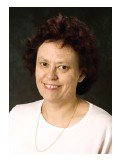 Professor Yvonne Wells
Professor Yvonne Wells
Yvonne Wells is a research psychologist whose work focuses on ageing and aged care policy development, as well as the public health issues facing an ageing society. Yvonne currently holds the Chair in Aged Care Research and Policy Development, a position jointly funded by La Trobe University Faculty of Health Sciences and Uniting Aged Care Victoria and Tasmania. She is also Head of the Lincoln Centre for Research on Ageing at La Trobe University.
Yvonne commenced her career as a practising clinical psychologist, then moved into academia, completing her PhD at La Trobe University in 1995. Throughout her research career, Yvonne has applied psychological knowledge in areas of key policy relevance to Australia’s ageing population, and was a clear pioneer in the field of psychological research into retirement transitions. Yvonne has an enviable track record of competitive grant funding, and has published extensively in peer-reviewed journals as well as authoring influential reports for government. She is a reviewer and associate editor for various relevant Australian and international journals. Her expertise is recognised by her membership of the Aged Care Work Force Committee for the Department of Health and Ageing and the Australian Association of Gerontology, who admitted her as a Fellow in 2000.
Yvonne has been Convenor of the Victorian Branch of the APS Psychology and Ageing Interest Group since 2001 and was also Treasurer in 2000. She has also convened symposia and presented papers at the APS Annual Conferences since 1996.
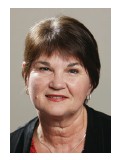 Dr Deborah Wilmoth
Dr Deborah Wilmoth
Deborah Wilmoth is a clinical psychologist who has worked in public, tertiary education and private settings in the United States and Australia for over two decades. Deborah has just stepped down from the position of Chief Health Professions Officer with the Western Australian Department of Health, the first clinical psychologist to hold this position in WA. In September 2011, she took up the position of Clinic Director for the School of Psychology at Bond University.
Since completing her Doctorate of Psychology at the Florida Institute of Technology in 1985, Deborah’s work in psychology has encompassed direct clinical service provision in the public and private sector, teaching at undergraduate and postgraduate levels, regulation of the psychology profession through membership of relevant Boards of Psychology, publication of refereed papers, and presentations at numerous national and international conferences. In 1997 Deborah moved to Australia to take up the role of Head of Department of Clinical Psychology at Perth’s King Edward’s Memorial Hospital, where she oversaw the consolidation and expansion of the Clinical Psychology Department. Deborah was also a member of the Western Australian Board of Psychologists (2002–2010).
Deborah was National Chair of the APS College of Clinical Psychologists (2006–2010), National Secretary of the CCLIN (2002–2006), Chair of the WA section of the CCLIN (2000–2002) and Secretary of the WA CCLIN (1998–2000). In 2010 she was seconded on to the APS Board of Directors.
The information in these profiles was extracted from citations provided by the nominators of each of the new APS Fellows.